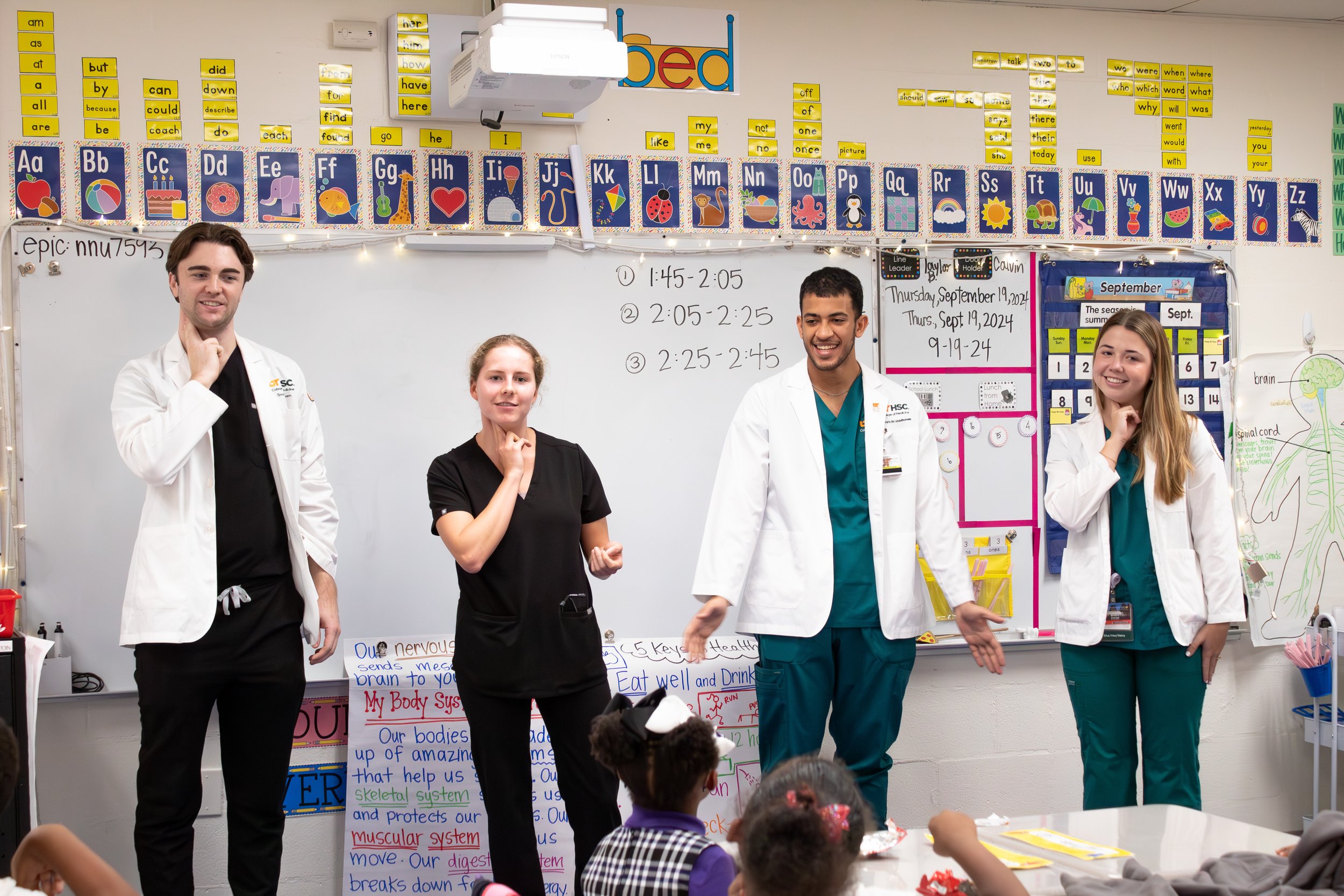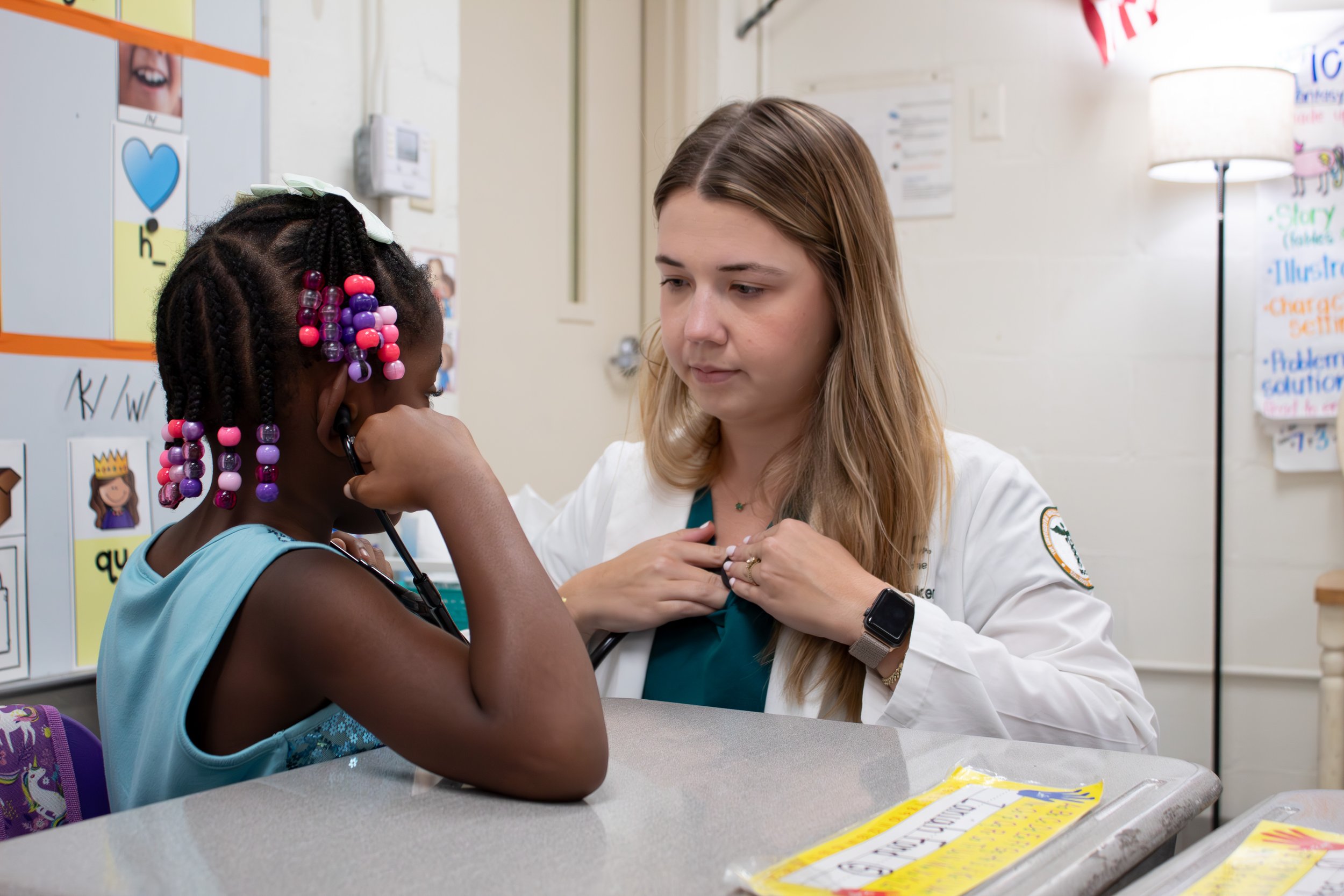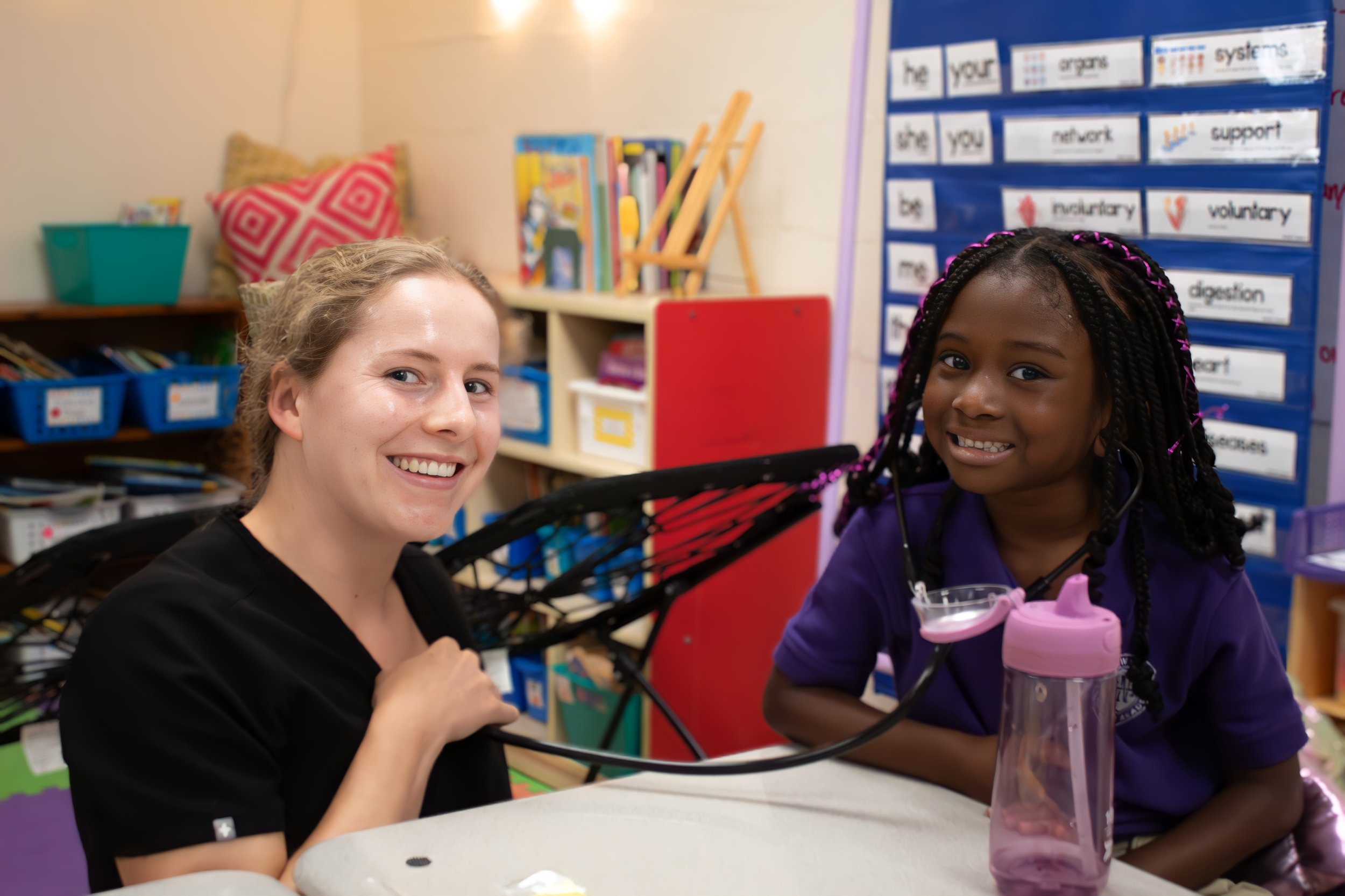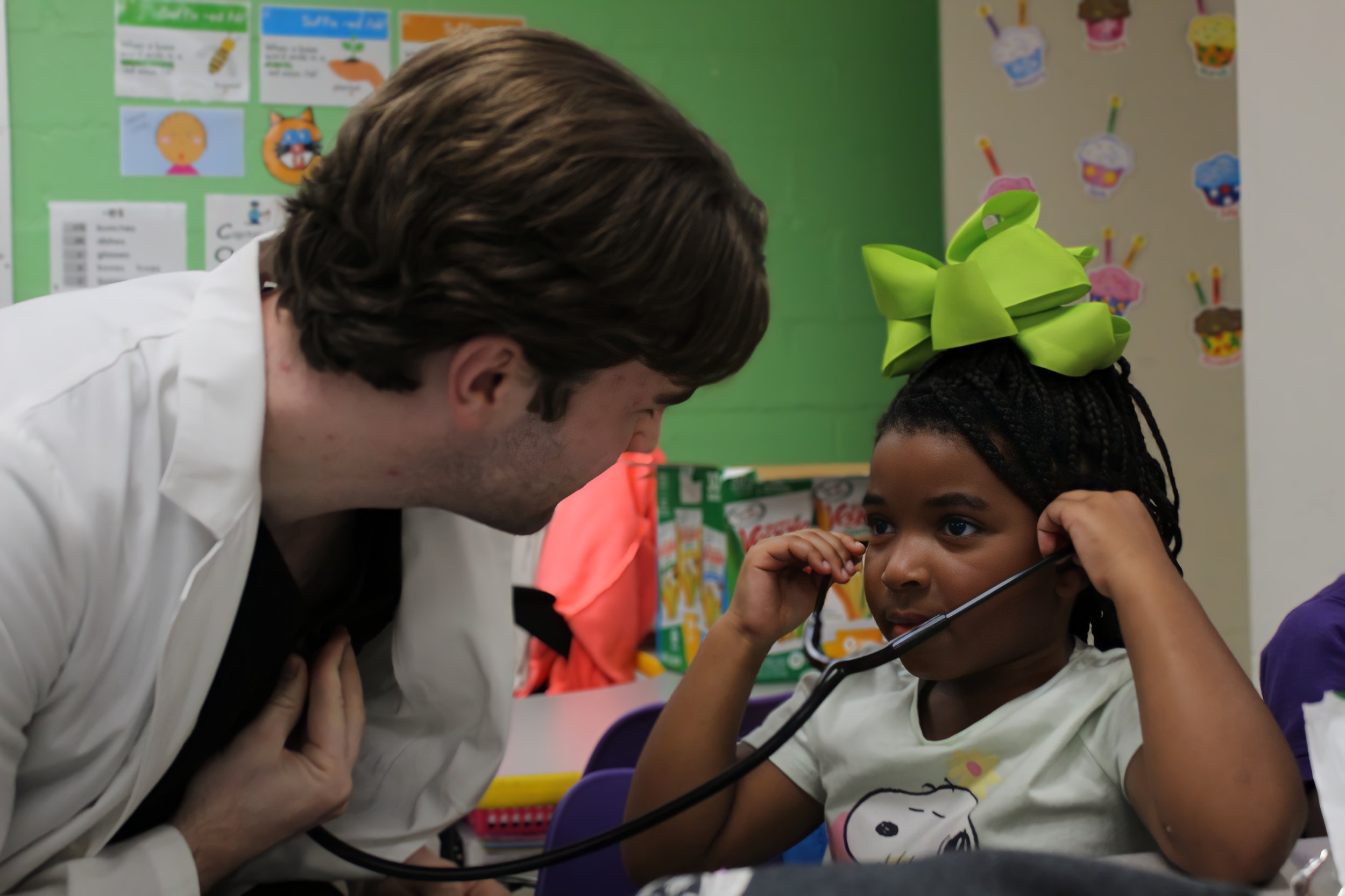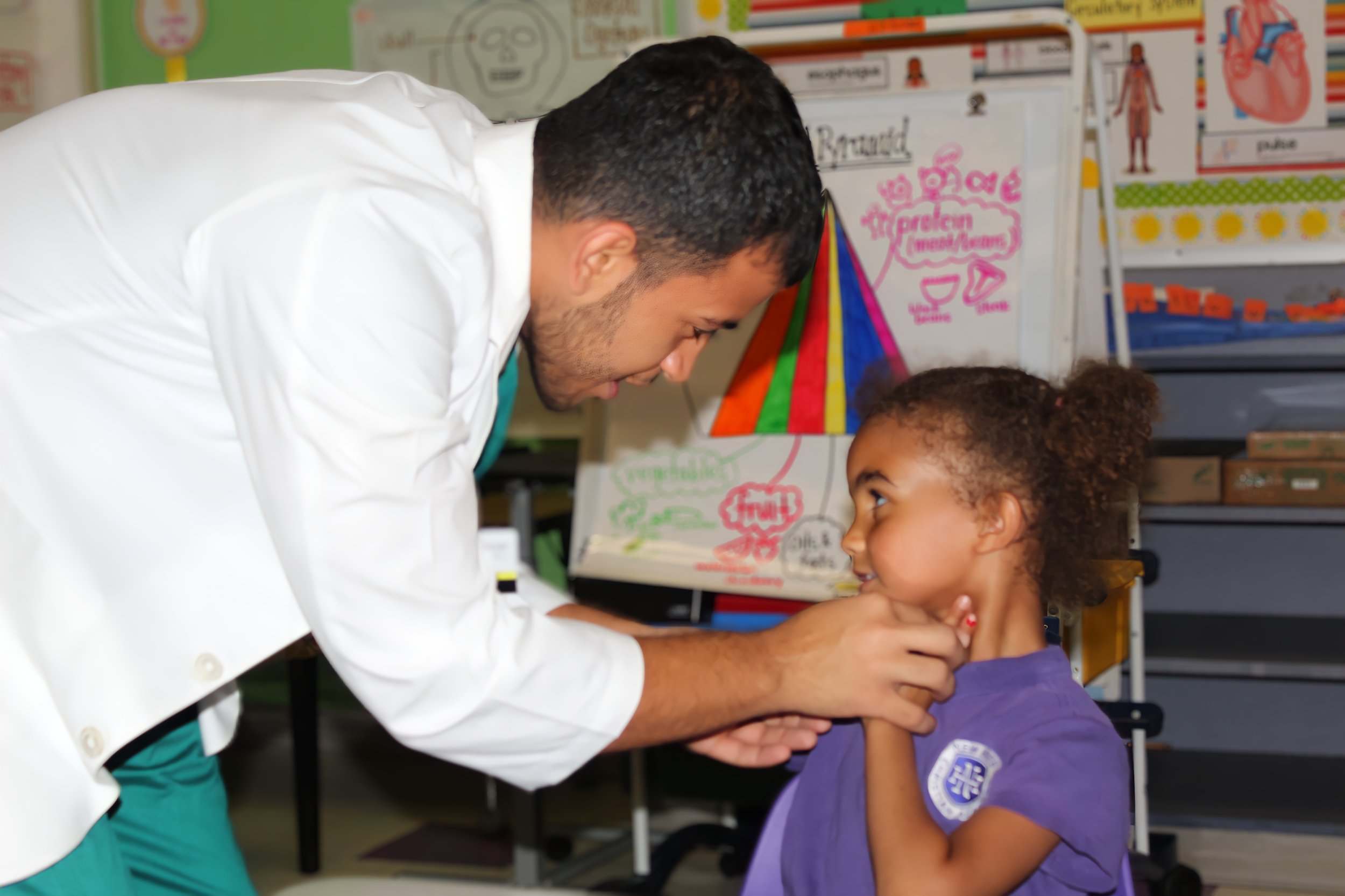Medical Students Teach Health-Based Lessons to New Hope Students
University of Tennessee Health Science Center medical students Mustafaa Abdul Hussein, Lauren Donnelly, Courtney Baker, and Sean Graham conduct a human body lesson for first graders at New Hope Christian Academy.
Memphis, Tenn. — First graders at New Hope Christian Academy (NHCA) are learning a human body unit in their classrooms and medical students from The University of Tennessee Health Science Center (UTHSC) are helping with the lesson.
Medical students from UTHSC have partnered with NHCA for the past three years to conduct bi-weekly lessons on health topics. The medical students are in a group called Health Students Teach Memphis Youth (HSTMY), an organization which operates through UTHSC College of Medicine, which has expanded to the College of Pharmacy and College of Nursing students since its inception in 2019.
The organization works with youth across the Mid-South to educate them about various health topics from nutrition to physical wellness.
The purpose of the organization is to improve the health literacy habits of Memphis youth by educating them about the field of medicine and inspiring the next generation of healthcare professionals. Their goal is to have groups of four to five medical students visit local schools or nonprofit programs to teach health-based lessons or discuss careers in medicine with elementary and middle school students.
The partnership began three years ago when first grade teacher Emily Higginbotham brought the idea to NHCA from her previous school.
The health-based lessons taught by the medical students have a different focus for each visit such as learning about the cardiovascular system, exercise, and other science-related bodily units.
“It's just been a really fun way to kind of introduce kids to the body and for them to like science at a really young age,” said second-year medical student Lauren Donnelly, who is also a member of the HSTMY group. “You get them excited because it's cool to learn about science and it's geared towards them until they can understand it. It fits really well with you guys' [NHCA] curriculum right now, which has been awesome.”
Another take away from the health-based lessons is getting children to have a different outlook about going to the doctor.
“I think it's really important to have kids meet doctors and feel like they know doctors versus just going in every now and then for your shots and all they think about when they think of doctors is scary offices and maybe a lollipop at the end,” said second-year medical student Sean Graham and member of HSTMY.
In one recent class, the breakout sessions involved hands-on activities such as first graders listening to their hearts through a stethoscope and knowing how to feel their pulse. The focus is to primarily answer students’ questions about health and not just the standard lecture style discussion.
The HSTMY group has a year-round partnership with NHCA to teach health-based lessons during the fall, and will return in the springtime, teaching a different lesson. “We’re trying to fill in those gaps to make kids in the city healthier in whatever ways that we can,” said Courtney Baker, second-year medical student and member of the HSTMY group. Baker continued to share how the lessons are helpful for the parent and child to be more aware at their next doctor’s visit.
Higginbotham expressed there is potential to expand the HSTMY group’s health-based lessons to other grades at NHCA. The first graders in her class enjoy hearing about the process of becoming a medical professional. They now have a new appreciation for the dedication it takes to pursue a career in medicine.
“My class loves having visitors come, especially when they wear cool lab coats and they let students listen to their stethoscopes,” Higginbotham said. “The volunteers that have come to our class over the years have been a diverse group of students from all backgrounds. I think it's important for students to see that anyone can become a health professional no matter race, gender, or background.”
